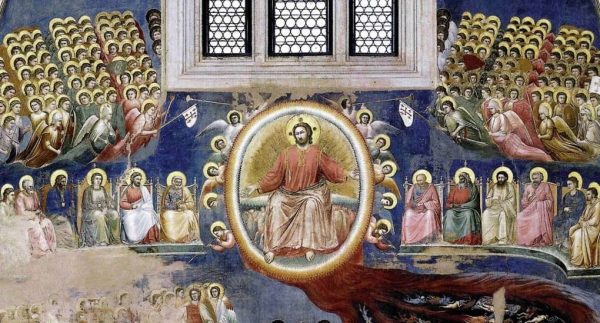Then I saw a great white throne and Him who sat on it… And I saw the dead, small and great, standing before God, and books were opened… And the dead were judged according to their works, by the things which were written in the books. (Rev. 20:11-12)
The theme of the Last Judgment of God’s creation has been the subject of many books, lectures, sermons, and conversations. However, its relation to the First Judgment of creation is seldom discussed.
The First Judgment
In Genesis chapter one, we see God creating the earth and calling it “good” over and over. When He reaches the end of the last day of creation, He looks upon all His work and judges it as “Very good” (Gen. 1:31). This is the First Judgment of creation, when all was natural – meaning it was all exactly as God designed it to be.
But as we know, mankind fell into sin, and “the wages of sin is death” (Rom. 6:23). Death, decay, corruption, sickness, and many other problems entered humanity, and through us, to the rest of creation (cf. Rom. 8:20, St. Symeon the New Theologian, Discourses, 28-29). This fall into sin and death is unnatural for creation. So, we, along with creation, entered a sub-natural state. When we say, “I am only human,” we misjudge the glorious state of what it means to be a truly healed human.
The Cure
The Son of God, the second Person of the Holy Trinity, took upon Himself our humanity so that He could heal it of sin and death. He became sin for us to reconcile us to God (cf. 2 Cor. 5:20-21). In doing so, He began the work of creation’s restoration. For all creation is restored in and through us, the Church.
Depart: I Never Knew You
Our Lord tells us at the Last Judgment, many will appear before Him and be shunned. These will be people who did great works in God’s name, yet their lives were not in accordance with the Gospel. To these people, our Lord states the fearful words, “I never knew you: depart from me, ye that work iniquity” (Matt. 7:23).
It parallels another passage of the five wise and five foolish virgins. By virginity, we can understand it to mean those who kept themselves pure from the ways of the world. When “the door was shut,” they knocked but were not allowed entry. They cry out, “Lord, Lord, open to us!” Then the dreadful words are spoken, “Assuredly, I say to you, I do not know you” (Matt. 25:1-13). Apparently, even being rigorous about purity is not enough.
About those who are saved in the end, the Apostle John wrote, “It has not yet been revealed what we shall be, but we know that when He is revealed, we shall be like Him, for we shall see Him as He is” (1 Jn. 3:2). We shall be like Him…
Tying the First and Last Together
God made humanity in His image and likeness (Gen. 1:26) – humanity was like Him. At the creation, He pronounced the First Judgment, calling this humanity-in-His-image “very good.” When we fell into sin and marred the image of Him within us, He provided a way to restore it in Jesus Christ. Because of the work of Christ, the path to being “very good” in God’s sight is once again opened.
At the Last Judgment, God will look upon us to see if His image has been restored within us. Did we trust in Him to make us very good once again? Or did we form ourselves in the image of sin, selfish desires, or our own will?
He will look upon us and say one of two things. Either, “Yes, I see my image restored in you. I know you. Well done, good and faithful servant. You are washed, you are pure, you are beautiful. Enter into my joy.”
Or He will say, “Who are you? I look upon you and see the image of sin; I see the image of self-will and selfishness. I do not recognize you as the thing I called ‘very good’ at the First Judgment in the Garden. Depart from me, for I know you not.”
The Same Judgment
The First and Last Judgments will be the same in some sense. God will look upon us to see if we are what He created us to be. Will He look at me and see His image and likeness? Or will He see something He doesn’t recognize (since sin is something wholly other than God)?
St. Seraphim of Sarov taught that the five unwise virgins did not acquire the Holy Spirit. That is, they had good works, but they had no inner relationship with God that they were cultivating through prayer. In that way, they missed the entire point of life.
We are here on earth to find God, to know God deeply, to love Him, and to restore His creation through His love poured out in and through us. That’s the entire purpose of our existence! Let’s not waste another day. Let’s say along with St. Herman of Alaska, “From this day, from this hour, from this minute, we shall strive above all else to love God and to do His Holy Will!”

















